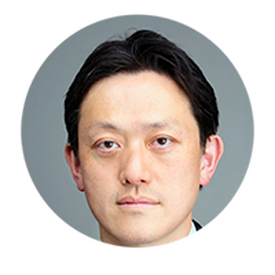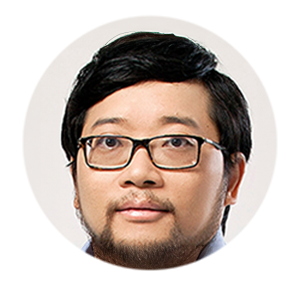Qijing's talk was not recorded.
|
Date: 14 Nov 2023 (Tuesday)
Time: 13:00 - 14:30 Format: Virtual (Zoom) Hosted by: Adrian TEO, IMCB, Singapore |
ABSTRACT
For T cell immunotherapy, the important points for good clinical benefit is to keep antigen-specificity, younger memory function and a high quantity of T cells. Although CD19 CAR- T-cell immunotherapy has had tremendous success, some patients do not respond well because of insufficient quality and quantity of the patient’s T cell for CAR modification and CAR-T function in the body. iPS reprogramming technology can instill anti- cancer T cells a younger phenotype, clonality and quantity. Also, in cases using non-T cell derived non-antigen-specific iPS cells, antigen-specific receptor modification of the iPSC can give cancer-specificity to the differentiated T cells. To establish such a regenerative and rejuvenated T cell immunotherapy, we developed a system to efficiently produce T cells from iPS cells. In this presentation, we will introduce basic research and clinical development of iPSC-based immune cells modified by antigen-specific receptors.
BIO
Shin Kaneko is a Professor at Center for iPS cell Research and Application, Kyoto University. He has graduated with a degree in Medicine and completing his PhD at University of Tsukuba. Then he took up a position of Lecturer of Clinical Hematology at the University of Tsukuba, where he performed a clinical study of immune-gene therapy against relapsed leukemia. It was in 2005 that he moved to Milan, Italy, to take on the role of Postdoctoral fellow in San Raffaele Institute. He returned to Japan in 2008 where he starts study about immunoregeneration through iPSC technology as an Assistant Professor of the Division of Stem Cell Therapy at the University of Tokyo. In 2012, He moved at Kyoto University as an Associate Professor, then current position from 2020. He also has concurrent post a Professor at University of Tsukuba and a director of Shinobi, a spinout bio-venture company from his laboratory. From 2022, He is also deputy director of CiRA..
For T cell immunotherapy, the important points for good clinical benefit is to keep antigen-specificity, younger memory function and a high quantity of T cells. Although CD19 CAR- T-cell immunotherapy has had tremendous success, some patients do not respond well because of insufficient quality and quantity of the patient’s T cell for CAR modification and CAR-T function in the body. iPS reprogramming technology can instill anti- cancer T cells a younger phenotype, clonality and quantity. Also, in cases using non-T cell derived non-antigen-specific iPS cells, antigen-specific receptor modification of the iPSC can give cancer-specificity to the differentiated T cells. To establish such a regenerative and rejuvenated T cell immunotherapy, we developed a system to efficiently produce T cells from iPS cells. In this presentation, we will introduce basic research and clinical development of iPSC-based immune cells modified by antigen-specific receptors.
BIO
Shin Kaneko is a Professor at Center for iPS cell Research and Application, Kyoto University. He has graduated with a degree in Medicine and completing his PhD at University of Tsukuba. Then he took up a position of Lecturer of Clinical Hematology at the University of Tsukuba, where he performed a clinical study of immune-gene therapy against relapsed leukemia. It was in 2005 that he moved to Milan, Italy, to take on the role of Postdoctoral fellow in San Raffaele Institute. He returned to Japan in 2008 where he starts study about immunoregeneration through iPSC technology as an Assistant Professor of the Division of Stem Cell Therapy at the University of Tokyo. In 2012, He moved at Kyoto University as an Associate Professor, then current position from 2020. He also has concurrent post a Professor at University of Tsukuba and a director of Shinobi, a spinout bio-venture company from his laboratory. From 2022, He is also deputy director of CiRA..
ABSTRACT
The success of CAR-T therapy against B cell malignancies underscores the potential of antigen-specific T cells for tumor eradication. Engineering T cell antigen specificity through natural receptors expands the range of targetable tumors. However, current TCR-T cell treatments have struggled to achieve comparable results in solid tumor patients. There is an immediate clinical need for a swift, cost-effective, and reliable platform to identify tumor antigen-specific TCRs. Moreover, acquiring a "druggable" TCR represents just the initial steps towards effective cancer treatment. Challenges like the immunosuppressive tumor microenvironment, tumor antigen variability, and issues with sustained anti-tumor immunity impede successful responses. In addressing these pivotal challenges, we will provide a discussion of our ongoing bench-to-bedside iterations in TCR-T therapy development.
BIO
Qi-Jing Li's journey in T cell biology started at Stanford, mentored by Dr. Mark Davis, focusing on TCR antigen recognition and sensitivity. His early research focused on unraveling TCR sensitivity, leading to key findings such as the identification of minimal subunits, rate-limiting steps, and sensitivity controls in TCR activation. In 2008, he initiated his independent career at Duke, with a primary focus on tumor immunology. As an academic scientist, he pioneered technology platforms for immunogenomics profiling, antigen-specific TCR identification, and engineered cell therapy tools. Dr. Li led or aided 28 phase I/II therapeutic trials against various cancers and co-founded three clinical-stage companies to translate CAR-T, TCR-T, and TIL technologies for cancer treatment. In 2022, A*STAR Singapore recruited him to further applied immunology and therapeutics development, spearheading cutting-edge research and clinical trials in immunotherapy.
The success of CAR-T therapy against B cell malignancies underscores the potential of antigen-specific T cells for tumor eradication. Engineering T cell antigen specificity through natural receptors expands the range of targetable tumors. However, current TCR-T cell treatments have struggled to achieve comparable results in solid tumor patients. There is an immediate clinical need for a swift, cost-effective, and reliable platform to identify tumor antigen-specific TCRs. Moreover, acquiring a "druggable" TCR represents just the initial steps towards effective cancer treatment. Challenges like the immunosuppressive tumor microenvironment, tumor antigen variability, and issues with sustained anti-tumor immunity impede successful responses. In addressing these pivotal challenges, we will provide a discussion of our ongoing bench-to-bedside iterations in TCR-T therapy development.
BIO
Qi-Jing Li's journey in T cell biology started at Stanford, mentored by Dr. Mark Davis, focusing on TCR antigen recognition and sensitivity. His early research focused on unraveling TCR sensitivity, leading to key findings such as the identification of minimal subunits, rate-limiting steps, and sensitivity controls in TCR activation. In 2008, he initiated his independent career at Duke, with a primary focus on tumor immunology. As an academic scientist, he pioneered technology platforms for immunogenomics profiling, antigen-specific TCR identification, and engineered cell therapy tools. Dr. Li led or aided 28 phase I/II therapeutic trials against various cancers and co-founded three clinical-stage companies to translate CAR-T, TCR-T, and TIL technologies for cancer treatment. In 2022, A*STAR Singapore recruited him to further applied immunology and therapeutics development, spearheading cutting-edge research and clinical trials in immunotherapy.


